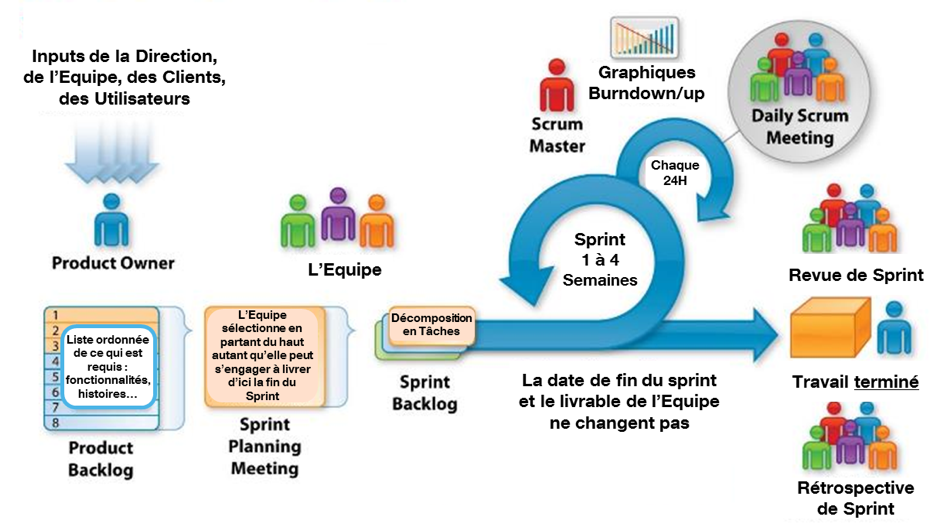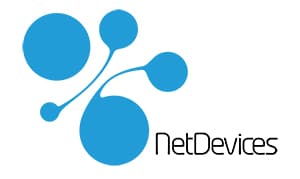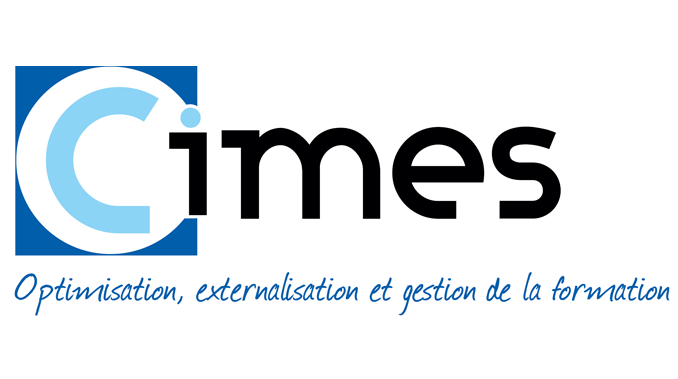Digital transformation project at CIMES Group
Founded in 1993, the CIMES Group is the French leader in outsourcing of training management. The teams were able to quickly develop expertise and qualified service solutions in order to stand out in a market that was just emerging.
Today, they are the leading French provider of outsourced management of administrative, logistical and financial training processes.
To accelerate its digital transformation, the CIMES Group called on the services of NetDevices.
The context of the CIMES group: structuring and evolution of systems
Digital transformation, an opportunity
The CIMES group's field may be directly or indirectly impacted by the "uberization" of training implementation (direct access between business needs and trainers, SuperProfs model) as well as the use of AI and blockchain by competing players to gain process and financial efficiency.
Using a methodology AGILE was an opportunity to improve the internal visibility of the work and priorities of the "DSI" team and to have a better management of priorities with short-term objectives.
Recovering dynamism and developing teams
From their beginnings specializing in support for large companies, the CIMES Group has extended its services to ETIs (intermediate-sized companies). To guarantee a high level of service to all their customers, they have equipped themselves with a high-performance, innovative software platform: EGOS Formation.
Implemented in 2007 and developed in-house, this solution has been a very powerful management and performance tool. It has allowed them to differentiate themselves and bring value to their customers.
Some feedback points to the need for EGOS to evolve, with a more effective link between sales and technical teams, and ultimately to make EGOS even better adapted to the current market, customer and usage context.
In addition, it offered the opportunity to move work methodologies towards AGILE.
Implementation of the accompaniment towards the digital transformation: AGILE
The objective of this digital transformation was to relaunch the EGOS system internally and externally to adapt it to the current context. For this, it was appropriate to set up a new organization of teams and systems to gain in efficiency
However, the challenge for NetDevices is to anticipate the changes in the sector and the potential arrival of new, more "digital" players.
To do this, we are opting for a transition to the AGILE method, which involves all the people in the management.
By automating these new methods, we save time for the teams.
An internal reorganization of the teams
The implementation of digital transformation requires a new organization of roles.
We have thus dissociated the IT department from the development department: the IT department manages the office tools, hardware, licenses, and network issues. The development team is not disturbed and focuses on EGOS.
The new organization includes:
- A New Project Architect" and "Product Owner Back-Office
- A Lead Dev / Scrum Master who guides the teams inapplication the new methodological framework
- A Front Office Product Owner who acts as a link between the client and the teams.
- Developers
Implementation of the AGILE methodology and the use of JIRA
The objective is to make the development and communication of the need more fluid by setting up an organization full-agile by freezing the various necessary project instances.
The implementation of the methodology AGILE is practiced in 3 points:
- Definition of project actors: Product Owner, ScrumMaster and Developers
- Instances related to the product as a whole: Story mapping, Backlog writing, Backlog grooming, Poker planning
- Recurring instances related to the development iteration: Daily Sprint Meeting, Sprint planning, Sprint Review (demo), Sprint Retro
Ritual AGILE : The Daily Sprint Meeting
The objective of the Daily Sprint Meeting (or stand-up meeting) is to review in a very quick way the progress of a sprint at the moment T.
It is a daily meeting that takes place in the morning and must be limited in time: it does not exceed fifteen minutes.
The goal is to consult with developers on three key issues:
- What was done yesterday?
- What is planned for today?
- Are there any problems or unforeseen events?
Poker planning ritual
The aim of this workshop is to be able to assign complexity points to the user units, in order to facilitate sprint planning and to have greater visibility over landing dates for features.
It is up to the development team to estimate a story point complexity for each of these US taking into account the estimated development complexity, the approximate development load/time, the unknown or possible risks related to the development of the story.
At the end of the workshop, the US becomes "ready for development" and can be planned in a Sprint.
Sprint Planning Ritual
The objective is to prioritize ready and costed requests in order to take them into account in a Sprint.
During this workshop, the Product Owner defines a Sprint goal and the list of requests to be considered for the Sprint. Ideally, the PO's choice of prioritization should be based on factual data (ROI) and less on will alone.
Ritual AGILE : Sprint Retro
The retrospective is the essential and necessary meeting for the visibility and communication process. It is usually done right after the Sprint Demo.
The goal is to build trust among all team members.
The retrospective can therefore take many forms from one meeting to the next.
 NetDevices has supported the CIMES group in its digital transformation with a CDO or Scrum master. The CDO was responsible for defining the company's vision and strategic objectives; getting all business lines and employees to embrace the digital culture; developing the company's business lines and organization; and, finally, managing the implementation of the digital transformation projects.
NetDevices has supported the CIMES group in its digital transformation with a CDO or Scrum master. The CDO was responsible for defining the company's vision and strategic objectives; getting all business lines and employees to embrace the digital culture; developing the company's business lines and organization; and, finally, managing the implementation of the digital transformation projects.
We worked on the implementation of certain technical subjects to support the group:
- POC for the implementation of Web2Mobile for the reporting tool of mobile evaluations
- Development of the automation tool for invoice processing ( NodeJS, React)
Tool: JIRA
Methodology: AGILE, Scrum



